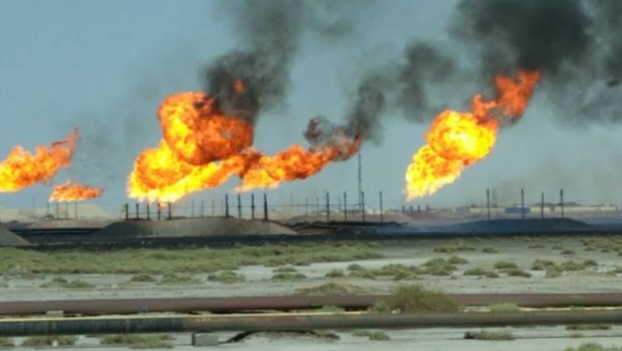Survey Shows 72% Nigerians Support Actions To Reduce Methane Emissions

By Gift Eguavoen
A new survey commissioned by the Global Methane Hub has shown that 72percent of Nigerians strongly support local and national policies to reduce harmful methane gas emissions.
According to the survey which was conducted in 17 countries including Nigeria, 8 in 10 Nigerians support actions to minimize the impacts of climate change.
The survey is the first international poll on climate change and methane gas emissions. The poll provides new insight into public support for solutions across 17 countries worldwide, including in Nigeria where 40percent of respondent’s report that the changing climate has an “extreme” (29%) or “strong” (11%) impact on their lives.
Methane gas emissions have contributed to about half of global warming, causing harm to communities around the globe. Reducing methane emissions by 45% is crucial to lowering warming by 0.3 degrees Celsius by 2040.
A statement jointly issued by Global Methane Hub and the Natural Resource Governance Institute (NRGI) informed that globally, the poll reached people in 17 countries across six continents, including; Australia, Brazil, Canada, Chile, China, Germany, India, Italy, Kenya, Mexico, Nigeria, Norway, Senegal, South Korea, Tanzania, the United Kingdom, and the United States.
Extractive360 reports that the online survey gathered data from a total of 12,976 adults, at least 750 in each country, and asked respondents questions on key issues ranging from views on climate change, environmental concerns and support for action, knowledge of methane gas emissions, and support for specific policies to reduce methane gas emissions.
In all 17 countries surveyed, respondents indicated significant support for policy solutions that would make strides toward tackling climate change. Overall, 82percent of respondents say they support actions taken to minimize methane emissions, with 39% showing strong support.
The statement added that the vast majority of Nigerians believe the climate is changing (93%) regardless of the reason. While 57% believe it is a result of human activity, 37% believe it is changing but not as a result of human activity. Overall, 80% of Nigerians support actions taken to address the impacts of climate change.
Commenting on the survey, Marcelo Mena, CEO of Global Methane Hub said, “Reducing methane emissions is the fastest way to drive down global temperature and reduce the impacts of climate change. The survey shows that countries most impacted by climate change are also those who most support mitigating methane. The good news is that doing so will also bring additional benefits, including energy and food security, and healthier communities.”
The survey highlighted that Nigerian respondents overall indicate particularly intense support for policies that would reduce harmful methane gas emissions, with 60% strongly supporting a policy that would tackle food loss and organic waste disposal into landfills, which is a major driver of climate-warming methane emissions; and 61% strongly support the implementation of new national policies to reduce flaring and methane pollution.
The survey also noted that though respondents’ initial level of familiarity with methane varies between the African countries surveyed, initial support for methane mitigation is however, high in all of them, and increases with further education on the issue.
“Respondents across all four countries reported high levels of concern about water quality, including 45% of Nigerians who are very concerned. Additionally, 54% of Nigerians are very concerned about crop yields, 44% about water levels, and 44% about droughts,” the survey noted.
Also commenting on the survey, Tengi George-Ikoli, Senior Officer, NRGI, Nigeria Program said: “This survey reflects the diverse climate impacts experienced by Nigeria’s 200 million people, from desertification in the north to flooding in the south.”
She added that, “Nigeria is expanding its gas utilization plans to achieve energy security and energy access. In this context, civil society actors, journalists, women, and members of communities affected by extraction require a better understanding of the impacts of methane emissions. The National Council on Climate Change and Federal Ministry of Petroleum Resources must design methane emissions-specific frameworks to strengthen methane emissions reduction strategies to guide oil and gas operations.”
Natalie Lupiani, VP at BSG, who also commented on the survey, said, the data, in her view, is a strong indication that people support their governments taking action to protect them against the rising global temperature.
“Taken together, the data tells a very clear picture, citizens in these 17 countries are impacted by climate change, they are concerned about it overall and on specific outcomes, such as water quality or heat waves, and they have an appetite for meaningful change at the public policy level to address methane emissions,” Lupiani said.





























